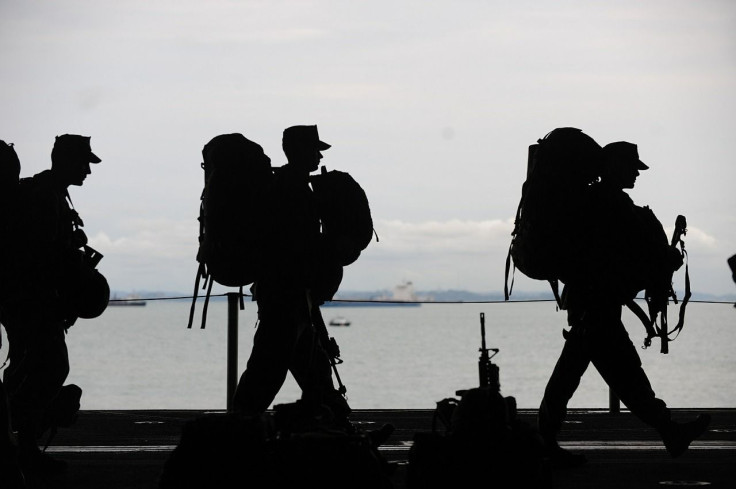Rates Of Sexual Assault May Be Higher For Military Men Than Women, With Men Less Likely To Seek Treatment

The men who are raped and sexually assaulted is neither an issue many people discuss nor research, making every report on the matter significant. And in the latest issue of Psychological Services, the official publication of the American Psychological Association (APA), several articles have set out to better understand why that is.
MST is defined as any sexual assault, sexual battery, or repeated sexual harassment experienced while serving in the American military. According to the APA, "there is underreporting" when it comes to the rate of male MST, suggesting the actual rate may be higher than we know. The APA said this is largely because of lingering stigma, male rape myths, and "feelings of helplessness."
In another article from the Bay Pines VA (Veteran Affairs) Healthcare System in Bay Pines, Fla., researchers found that men in the military are much less likely to report or seek treatment for sexual assault than women. According to the Department of Defense, about 67 percent of female and 81 percent of male victims don't report being sexually assaulted in the military. Half of the military's assaults are against men, but most research focuses on women.
Even after service, the effects of MST linger. Research shows that sexual assault may impact the mental health of men more so than women, perhaps because it is more stigmatizing for men, and more unexpected. Data from a residential MST program revealed that men had higher elevations of conditions, like hypomania and schizophrenia.
Though men suffer from these serious consequences of MST, there are very few VA residential programs that specialize in male sexual assault. This, in turn, contributes to the number of men not receiving treatment post-service — 38 percent of men who experience MST reportedly receive mental health treatment compared to 54 percent of women.
Taken together, the APA's issue concludes the most effective treatment for male MST would involve dispelling male rape myths, along with the idea that military sexual trauma among men is rare. Currently, though, the issue remains under-researched and under-treated.
Source: Fu M, Sbrocco T. Military Sexual Trauma. Psychological Services. 2015.
This article originally included research that stated military sexual trauma (MST) among military men could be up to 15 times higher than previously thought, possibly a result of the hypermasculine and heterosexual atmosphere within the military's atmosphere. The article now excludes this information after the APA's recent retraction.



























